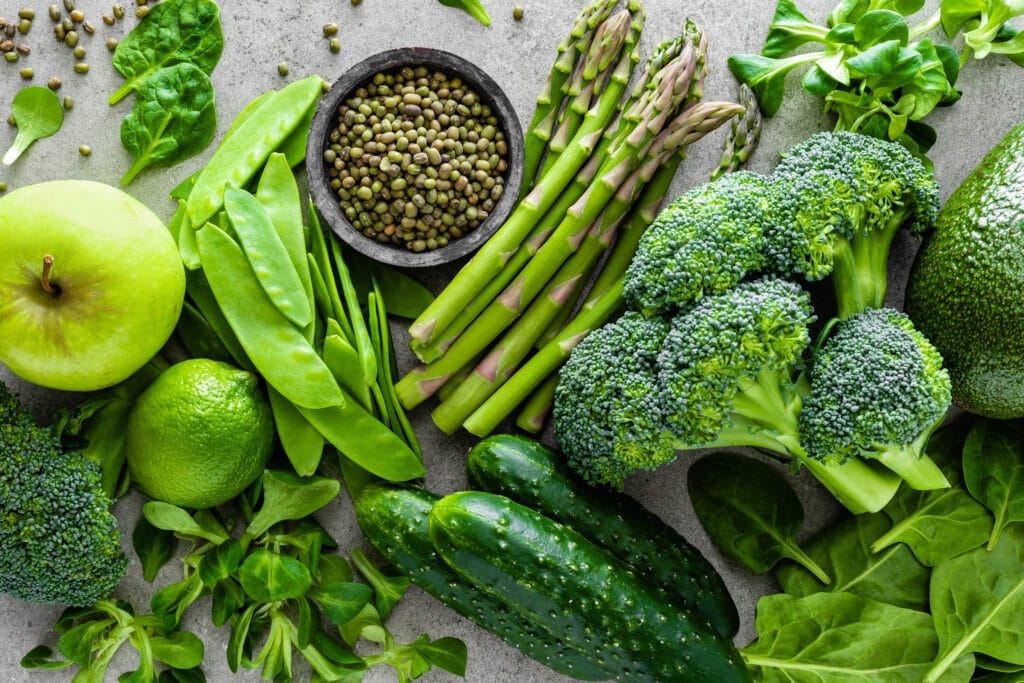
Can Low Iron Cause Weight Gain?
Iron and Its Significance for Our Health
Iron is an essential nutrient that plays a critical role in various bodily functions. It is primarily involved in the creation of hemoglobin, a protein component of red blood cells that transports oxygen from the lungs to the rest of the body. Additionally, iron contributes to the production of certain hormones and the proper functioning of the immune system.
When the body cannot produce enough hemoglobin due to low iron levels, the condition is known as iron deficiency anaemia. This condition can lead to several symptoms, including fatigue, weakness, concentration difficulties, and pale skin.

The Correlation Between Ferritin Levels & Iron
While iron and ferritin are often discussed together, they are not the same thing. Ferritin is a protein that stores iron and releases it when needed. The amount of ferritin in the blood can indicate the body’s iron stores.
Unlike iron, ferritin levels can rise even when iron levels are low, such as during inflammation or infection. Thus, it is possible to have high ferritin levels and low iron levels simultaneously.
Iron Deficiency & Weight Gain: What's The Connection?
Although iron deficiency anaemia does not directly cause weight gain, the symptoms associated with the condition can indirectly lead to an increase in weight. The lack of energy and constant fatigue can reduce physical activity levels, and a sedentary lifestyle can contribute to weight gain.
Furthermore, low iron levels can affect the functioning of the thyroid gland, slowing down the metabolism. An under-active thyroid or hypothyroidism can result in weight gain as the body burns fewer calories.
Is Weight Loss Possible with Increased Iron Intake?
Indeed, boosting your iron levels can contribute to weight loss in several ways. Firstly, consuming iron-rich foods can promote a nutrient-dense, balanced diet, which is crucial for weight management. Secondly, as iron levels improve, energy levels also increase. This boost can provide the necessary stamina for regular exercise, a critical component of any weight loss plan.
Moreover, improved iron levels can enhance thyroid function and metabolism, helping the body burn calories more efficiently. However, it’s crucial to remember that increasing iron intake alone will not guarantee weight loss. A holistic approach involving a balanced diet and regular exercise is essential for achieving long-term weight loss goals.
Iron-Rich Foods to Incorporate Into Your Diet
Including iron-rich foods in your diet is an effective way to maintain healthy iron levels. Here are eight foods high in iron that you might want to consider:
- Red Meat: A great source of heme iron, red meat also provides protein, zinc, and various B vitamins.
- Spinach: This leafy green vegetable is not only low in calories but also packed with iron and vitamin C.
- Legumes: Foods like lentils, chickpeas, and soybeans are rich in iron and other nutrients.
- Turkey: Turkey is a lean, high-protein food that also supplies a good amount of iron.
- Tuna: Besides being high in iron, tuna also provides beneficial omega-3 fatty acids.
- Pumpkin Seeds: These small seeds are an excellent source of iron, with a 28-gram serving providing 2.3 mg of iron.
- Liver and Organ Meats: Organ meats, including the liver, kidneys, brain, and heart, are high in iron and other essential nutrients.
- Dark Chocolate: Dark chocolate with at least 70% cocoa is not only delicious but also rich in iron.
Remember to pair these iron-rich foods with vitamin C-rich foods to enhance iron absorption. At the same time, avoid consuming calcium-rich foods like milk or cheese during meals as they can inhibit iron absorption.

Additional Strategies to Combat Iron Deficiency Anaemia
If you’re experiencing symptoms of iron deficiency anemia, it’s crucial to seek medical advice. Your healthcare provider can help identify the cause and formulate a treatment plan, which may include iron infusions, injections, iron supplements, or B12 supplements.
In severe cases, medications may be prescribed to stimulate red blood cell production. Always remember that self-diagnosis and self-treatment can be dangerous, and it’s essential to consult a healthcare professional for proper diagnosis and treatment.
Embracing a Holistic Approach to Weight Loss at My Weight Loss Clinic
At My Weight Loss Clinic, we understand that sustainable weight loss requires a holistic approach. That’s why we offer medical weight loss solutions through telehealth consultations across Australia, ensuring high-quality care at an affordable price.
Our three-stage program is designed to help you achieve your weight loss goals. We provide breakthrough treatments to jump-start your journey and hands-on support to help you make necessary lifestyle changes for weight loss. You’ll also gain access to certified health practitioners who are ready to assist you at every step of the way.
Whether you’re trying to break unhealthy habits that hinder your weight loss goals or want to adopt a holistic approach to your health, My Weight Loss Clinic can help you reach your weight loss goals sooner and maintain them for life.

My Weight Loss Clinic
We specialise in education and empowerment. We want this to be the last weight loss program you do.
"*" indicates required fields